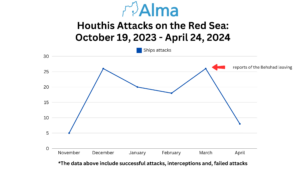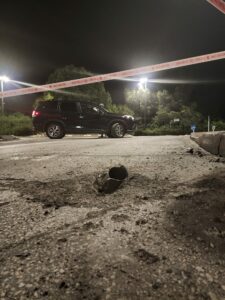In Lebanon, corruption, political interests and the struggle for influence take precedence also in times of a national emergency. Some of the international aid sent to Lebanon was exploited for political purposes and in the interests of influence by various power factors. Another part of the aid was exploited by corrupt parties for economic gains at the expense of the Lebanese citizens in need of assistance.
According to a report published by the Lebanon Crisis Observatory (مرصد الازمة – Marsad al-Azima), an organization at the American University of Beirut, the state of Lebanon is ranked third in the world for receiving international humanitarian funding and assistance, following Syria and Yemen.
Lebanon received $1.6 billion last year (an increase of half a billion dollars from the previous year) most of which was donated by humanitarian organizations and NGOs. Lebanon receives 5.8 percent of all humanitarian funding worldwide but ranks first in the world in terms of funding per capita. 76.5% of the total humanitarian aid sent to Lebanon comes from the United States, the European Union in general, and Germany in particular. Most of the aid was directed to Syrian refugees in Lebanon, the coronavirus crisis, and the aftermath of the explosion at the port of Beirut on August 4, 2020. Many countries from the Arab and Western world donated aid to Lebanon following the explosion, offering assistance in the form of foodstuffs, medical equipment, medicines, donations, the allocating of rescue teams, and more.
Many question marks hang over the fate of the foreign aid to Lebanon, only a minor part of it ended up in the hands of those in need and the victims. Just a month after the explosion, the Lebanese began to ask where the aid had disappeared to and to demand transparency in its distribution. As time went on, evidence began to emerge that some of the food products and some of the equipment that arrived in Lebanon as aid after the explosion had reached stores and supermarkets, sold at its full price. Other evidence indicated that some food and medical equipment remained in warehouses without proper handling or distribution, causing the food to rot and the medicines and medical equipment to expire.
Lebanese anger was particularly voiced in regards to two incidents in which food aid disappeared. The hashtag “I want my fish” spread on social media, in which people questioned the disappearance of over 12 tons of fish donated by the Mauritanian authorities to Lebanese victims of the disaster after the explosion in the port. Media pressure and popular outrage forced the Lebanese army command to issue an official statement saying the military had received the fish shipment and had it stored under health regulations. The announcement said that the army is in contact with aid organizations to coordinate the distribution of meals to families of the victims, meals cooked from the fish consignment. However, the announcement did not convince public opinion and was seen as an excuse to justify the embarrassment.
Using the hashtag “where’s my Ceylon tea”, the Lebanese wondered where had amounts of Ceylon tea, provided by the Sri Lankan government, had gone after the explosion. The Presidential office’s announcement saying that the tea was distributed to the families of the Republican Guard Brigade, drew widespread criticism against President Michel Aoun. Social media activists were outraged, stressing that the tea was sent to the victims of the disaster to help the victims and that it was not a special “gift” for the president or the Republican Guard Brigade at the Presidential Palace. Here as well, the fate of the tea was similar to the fate of the fish shipment. It is possible that the aid was transferred to those who do not deserve it or need it less.
The fate of foreign aid to Lebanon was also at the mercy of internal political friction and internal power struggles. The Qatari ambassador approved the additional donation of two extra field hospitals, one to the area of the city of Tyre and the other to the area of the city of Tripoli, intending one of these hospitals to be allocated towards the treatment of coronavirus patients. However, political differences between the Shi’ite duo; the Amal movement on the one hand, and Hezbollah on the other, delayed the establishment of the hospital in Tyre. Parliament Speaker Nabih Berri planned to situate the hospital inside the city of Tyre, while Hezbollah sought to establish it in the town of Jieh, where it has greater influence. Finally, Berri ordered the hospital to be transferred to Beirut, therefore the hospital was excluded from the city of Tyre, despite the great medical needs of southern Lebanon in light of the local spread of the coronavirus. Tyre does not have a national hospital, and the entire area has suffered from a lack of medical treatment.
While many countries and many international bodies have rallied to assist Lebanon immediately (see appendix), but then again, Lebanon is Lebanon and as usual, corruption, political interests, and power struggles take precedence even in the event of a national emergency. Some of the international aid that was sent to Lebanon was used for political needs and in the interests of influence by various factions. Another part of the aid was exploited by corrupt parties allowing them economic gains at the expense of Lebanese citizens in need of assistance.
Appendix – Details of the aid:
Note – Most of the aid actually received and some of it detailed here was received near the explosion (a few weeks)
Turkey:
Turkey made its hospitals accessible to the Lebanese and also designated its naval port Mersin for the docking of Lebanese ships until the port of Beirut was reopened. Turkey also sent two mobile hospitals and medical personnel to the disaster zone, along with 400 tons of aid products such as wheat, medical equipment, and medicines.
France:
France sent two airplanes with dozens of emergency medical personnel, a mobile medical unit, and 15 tons of aid.
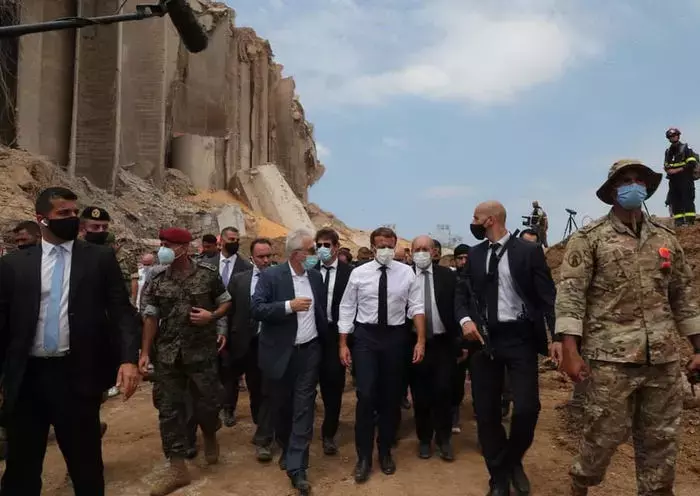
Qatar:
The kingdom’s residents donated over 94 million Qatari riyals, and Sheikh Tamim bin Hamad al-Thani, donated 50 million Qatari riyals. In addition, Qatar sent five airplanes carrying aid and medical equipment, and two fully equipped field hospitals with a capacity of 500 beds each. These hospitals were equipped with ventilators and medical equipment required to treat the injured. Soon after, Qatar also funded the rehabilitation of dozens of schools, with a budget of about $9.8 million.
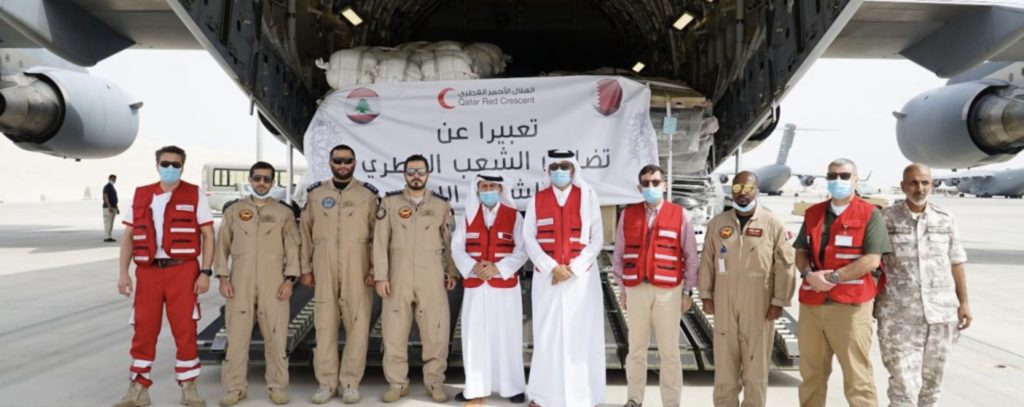
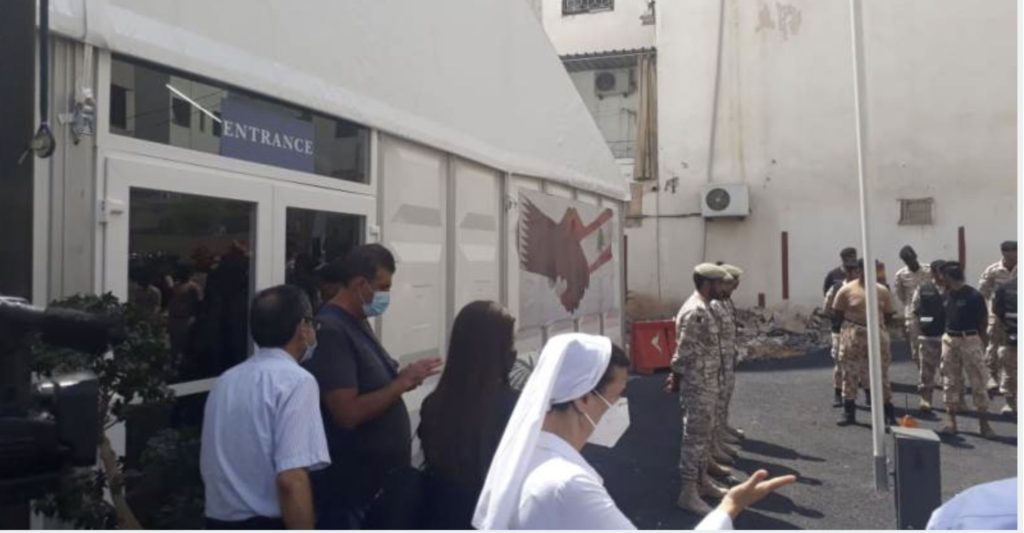
United States:
The U.S. sent three airplanes loaded with medical equipment and crews. It also announced that it would continue to assist as much as necessary.
Syria:
On President Assad’s orders, Syria sent Syrian Red Crescent ambulance crews and an airplane with the intention of transporting the wounded to hospitals in Syria for treatment.
Iran:
Iran ordered medical and monetary aid to be sent. Five Iranian airplanes landed in Beirut containing medical teams, food, and medical assistance.
Cyprus:
Cyprus sent two police helicopters including 10 emergency medical personnel teams and 8 police dogs to help locate victims in the debris.
UAE:
The UAE provided urgent humanitarian aid, which included medicines and medical supplies. An emergency flight leaving Dubai for Beirut carried about 30 tons of medical equipment, including trauma kits, surgical equipment, and personal protective equipment (PPE), provided by the World Health Organization and the International Federation of the Red Cross and Red Crescent Society from their international warehouses for humanitarian aid located in Dubai.
United Kingdom:
Britain contributed $6.6 million in aid, sending emergency medical staff as well, including specialists. In addition, Britain allocated a sum of £25million; £20million was provided to the World Food Program, and the remainder was donated by the British Red Cross for delivery of medical supplies.
Italy:
An Italian naval vessel loaded with medical supplies and food was sent to Beirut.
Saudi Arabia:
Saudi Arabia made a donation that included medicines and medical equipment to government hospitals and clinics.
Egypt:
Egypt sent aid containing dozens of tons of food and medical aid.
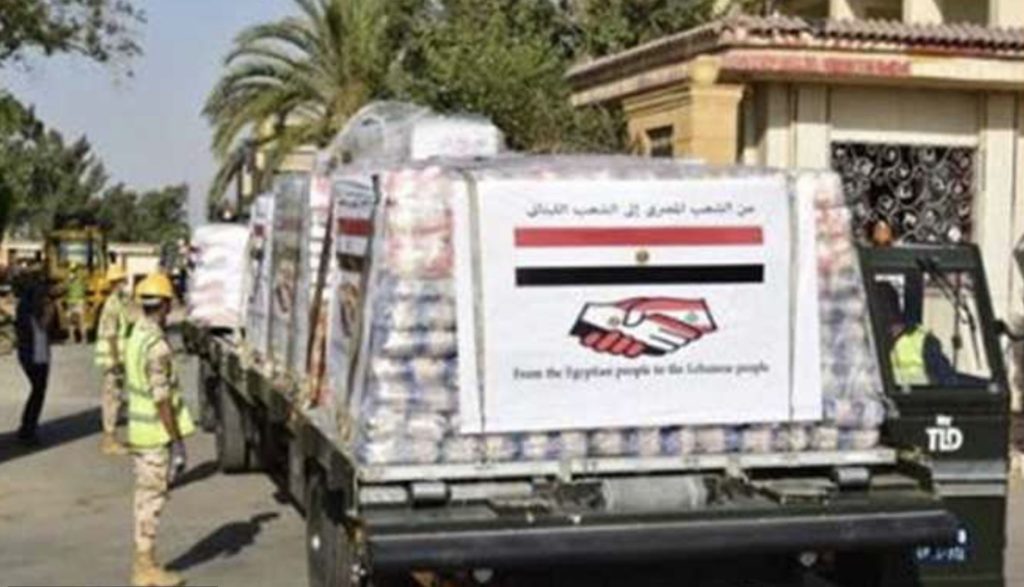
Russia:
Russia sent rescue and medical teams, a field hospital, and a laboratory for coronavirus testing. Russia also helped clear the debris caused by the explosion.
Jordan:
Jordan ordered a field hospital to be sent.
Tunisia:
Tunisia sent two military airplanes with food, medicine, and other medical supplies.
Iraq:
Iraq sent 13,000 tons of flour.
Kuwait:
Kuwait sent food and a field hospital. 18 airplanes delivering about 800 tons of aid. Kuwait also pledged $41 million in aid to Lebanon, including $30 million related to previous commitments, and $11 million designated for urgent assistance such as medical and food aid. Kuwait has also signed up to help the United Nations raise $35 million for emergency aid to Lebanon.
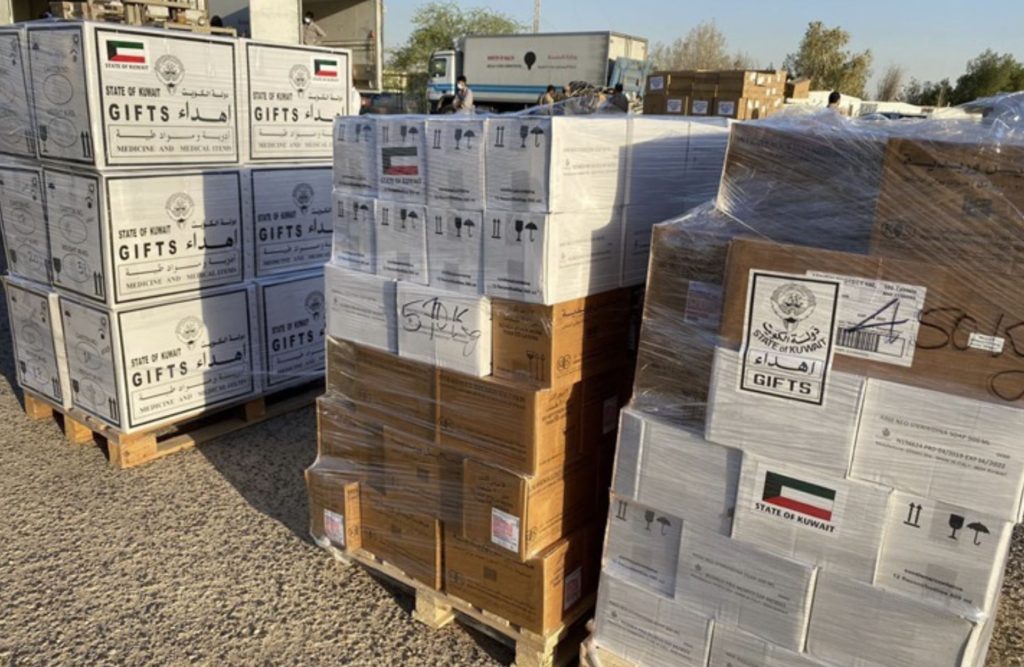
Additional countries, such as Denmark, Greece, Belgium, Austria, and Switzerland, have provided additional humanitarian assistance.
The World Food Program, the European Union, the World Bank, and the International Monetary Fund have announced their willingness to assist:
- The World Food Program has promised to help prevent food shortages in Lebanon, and distribute food donations to thousands of families, and is ready to provide supply chain management and logistical support. It was also reported that the World Food Program intends to send about 50,000 tons of wheat.
- The EU has announced that it is ready to discuss strengthening trade relations with Lebanon, evaluating the reconstruction of Beirut, and supporting talks with international financial institutions to generate more economic assistance.
- The European bloc sent more than 100 firefighters and a military medical evacuation ship, and also activated the Copernicus satellite mapping system to help assess the damage.
- The World Bank has announced its willingness to use its expertise to quickly assess the damage and assist in a rehabilitation program under international standards.
- In December 2020, the European Union and the United Nations in cooperation announced a $2.5 billion World Bank plan to rebuild Lebanon. The International Monetary Fund said it was reviewing all possible means to support Lebanon, and urged the international community to assist.
*Article written with the assistance of Dafna Messing.


